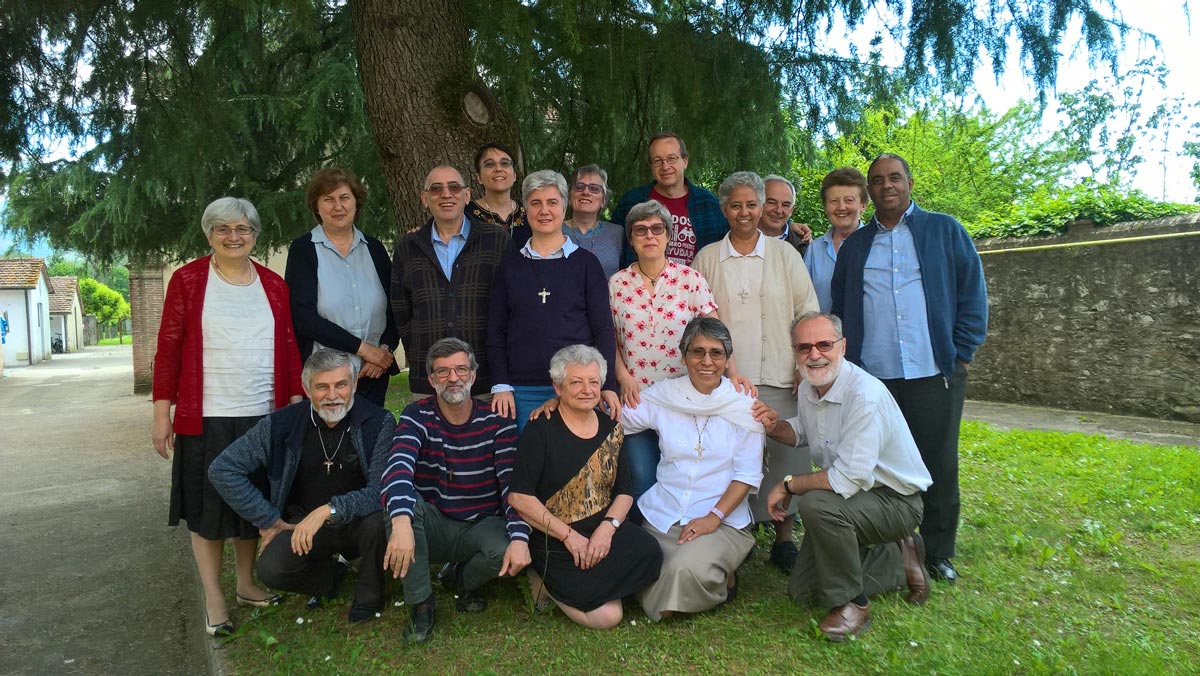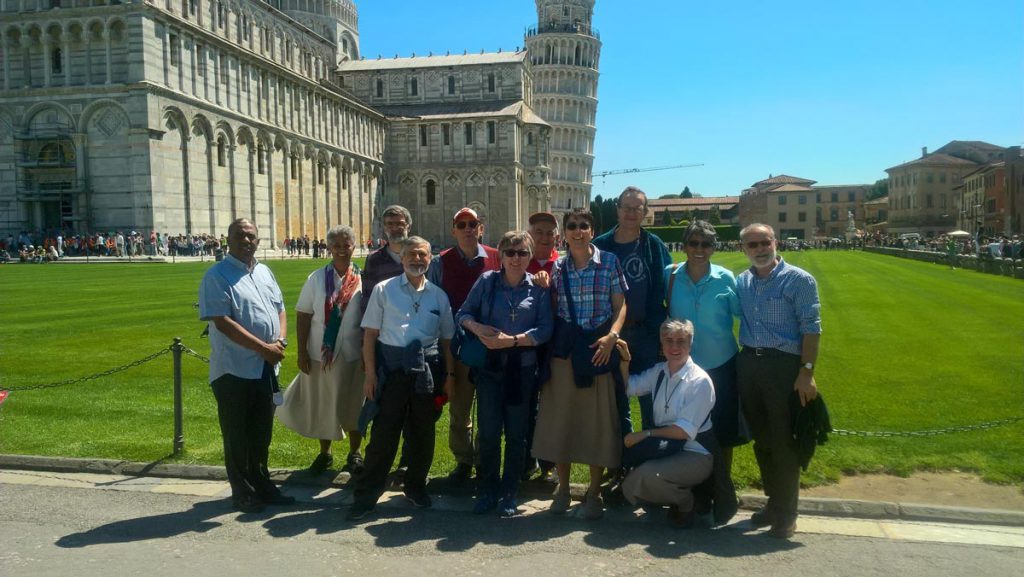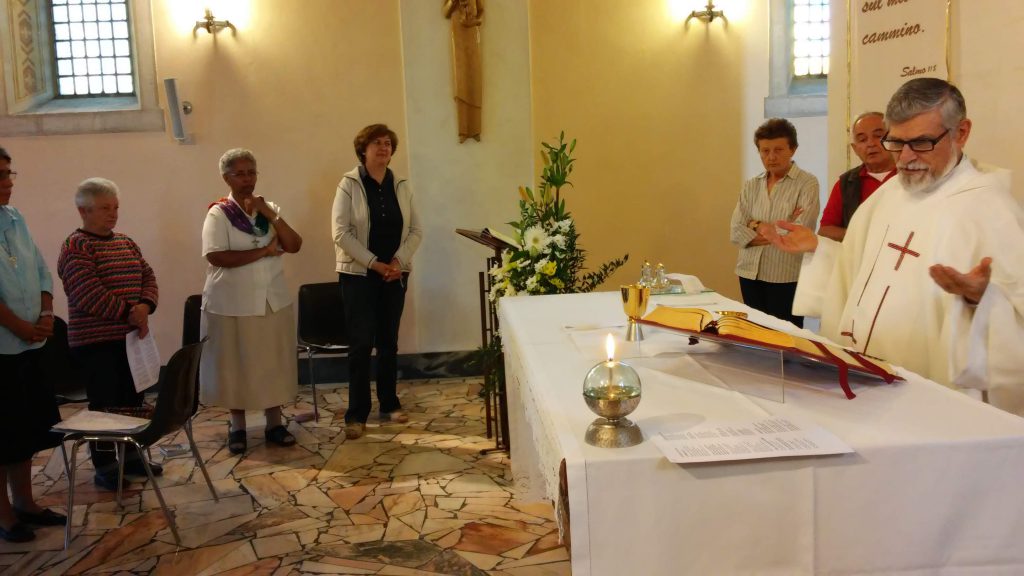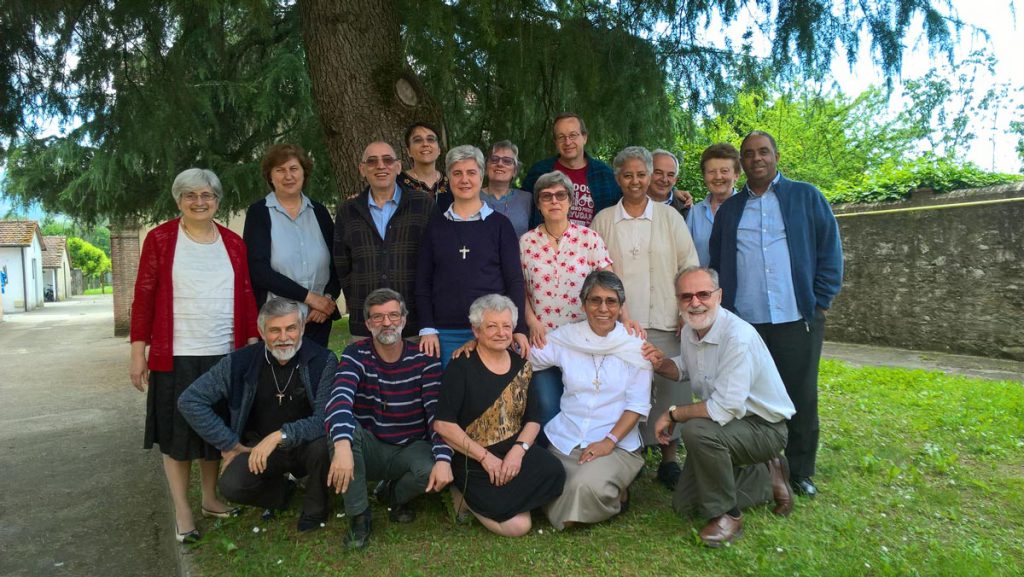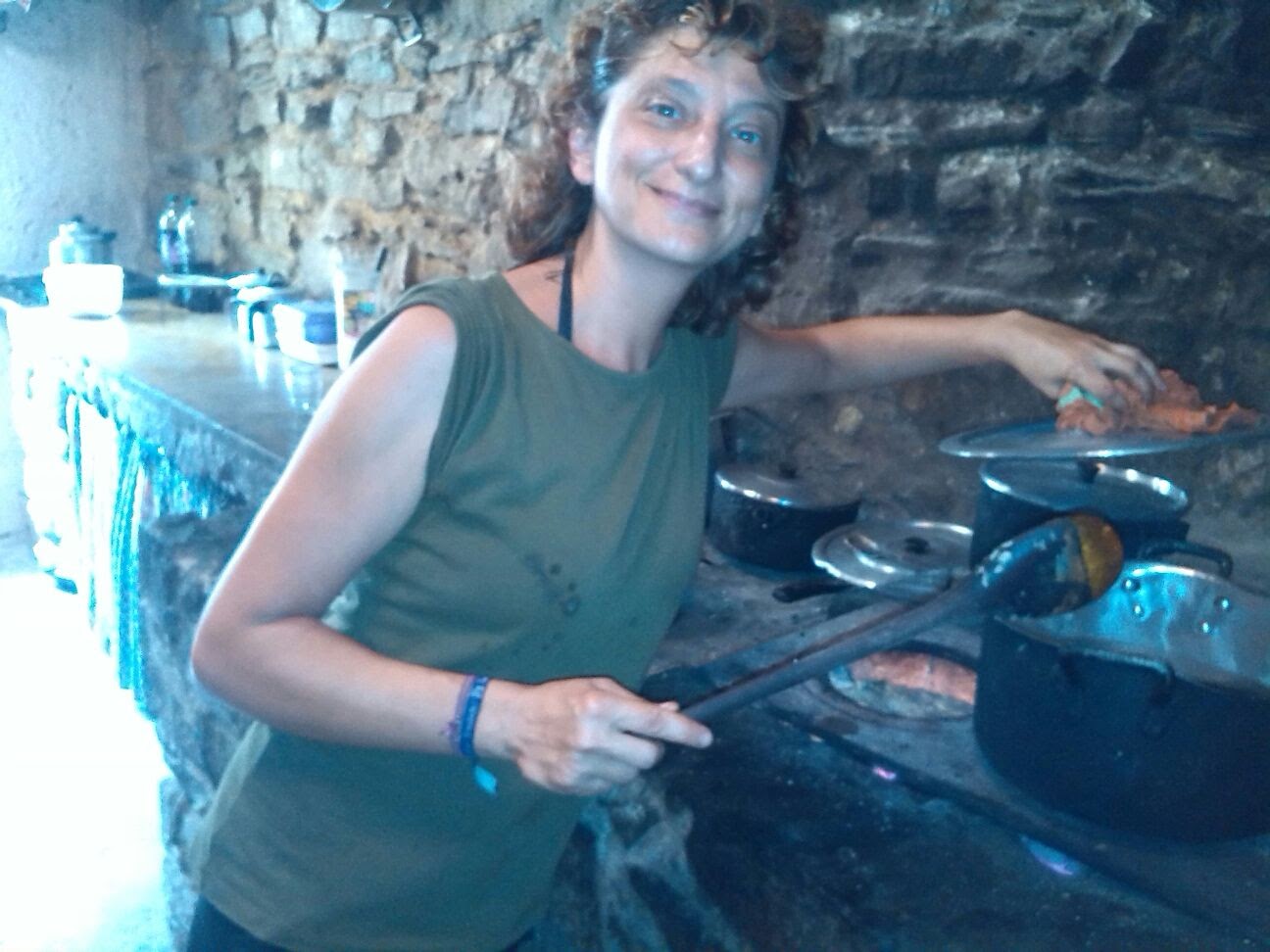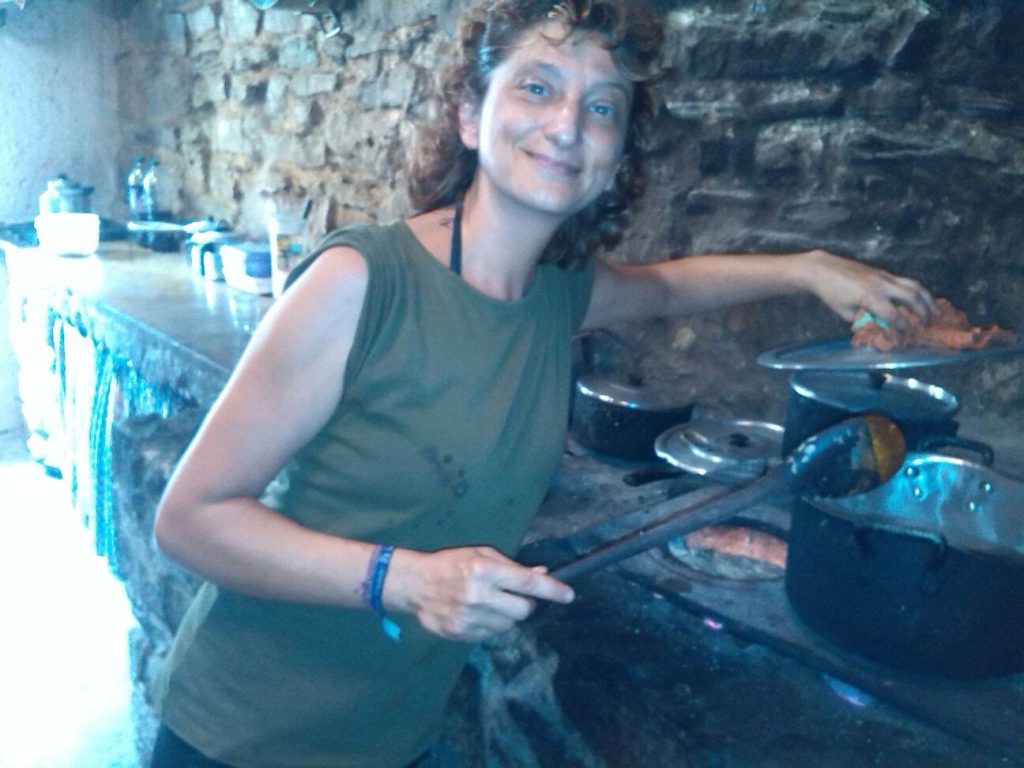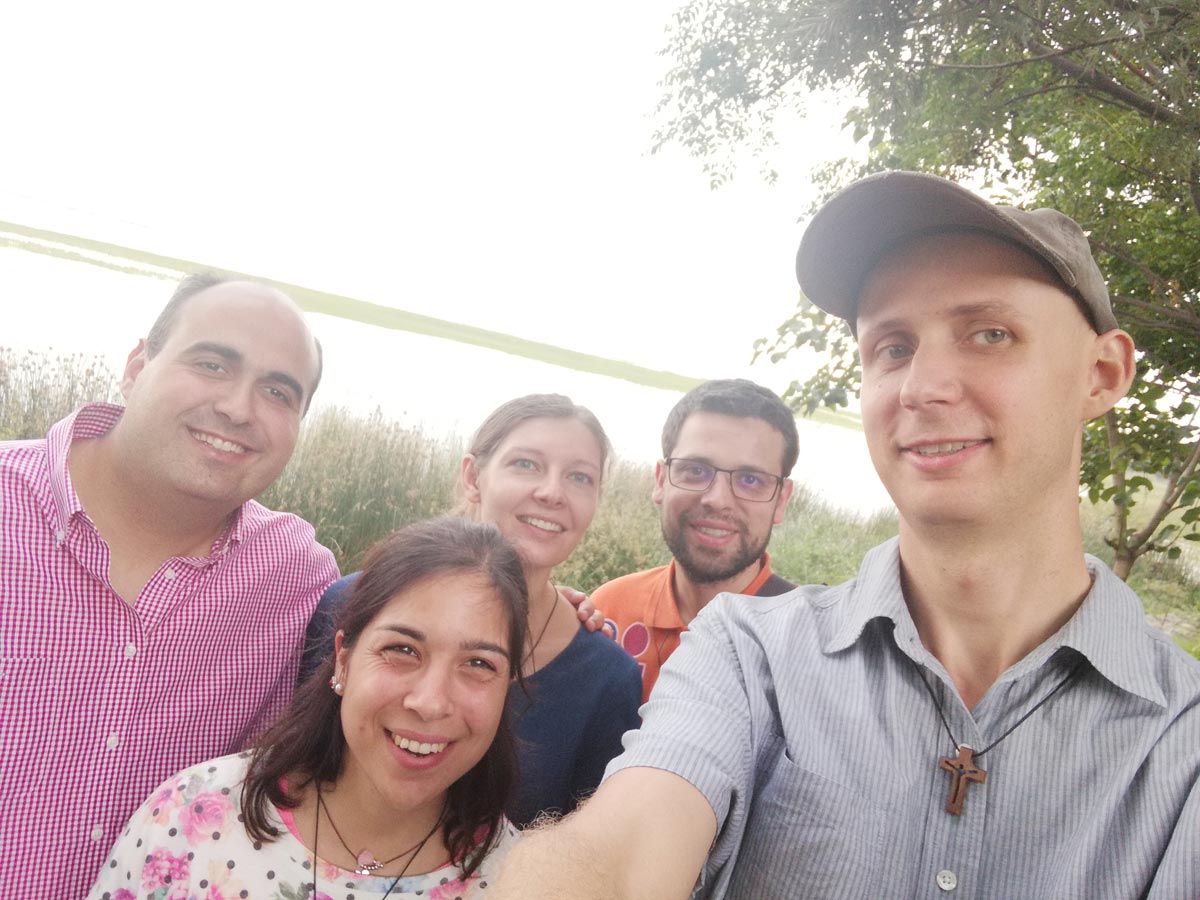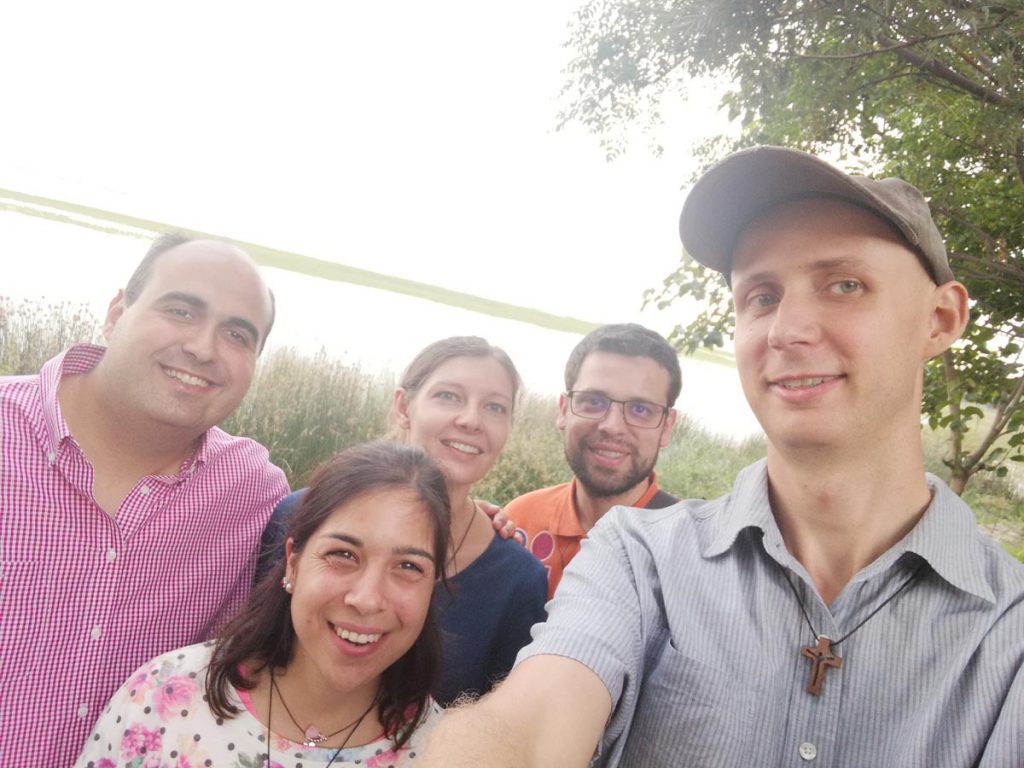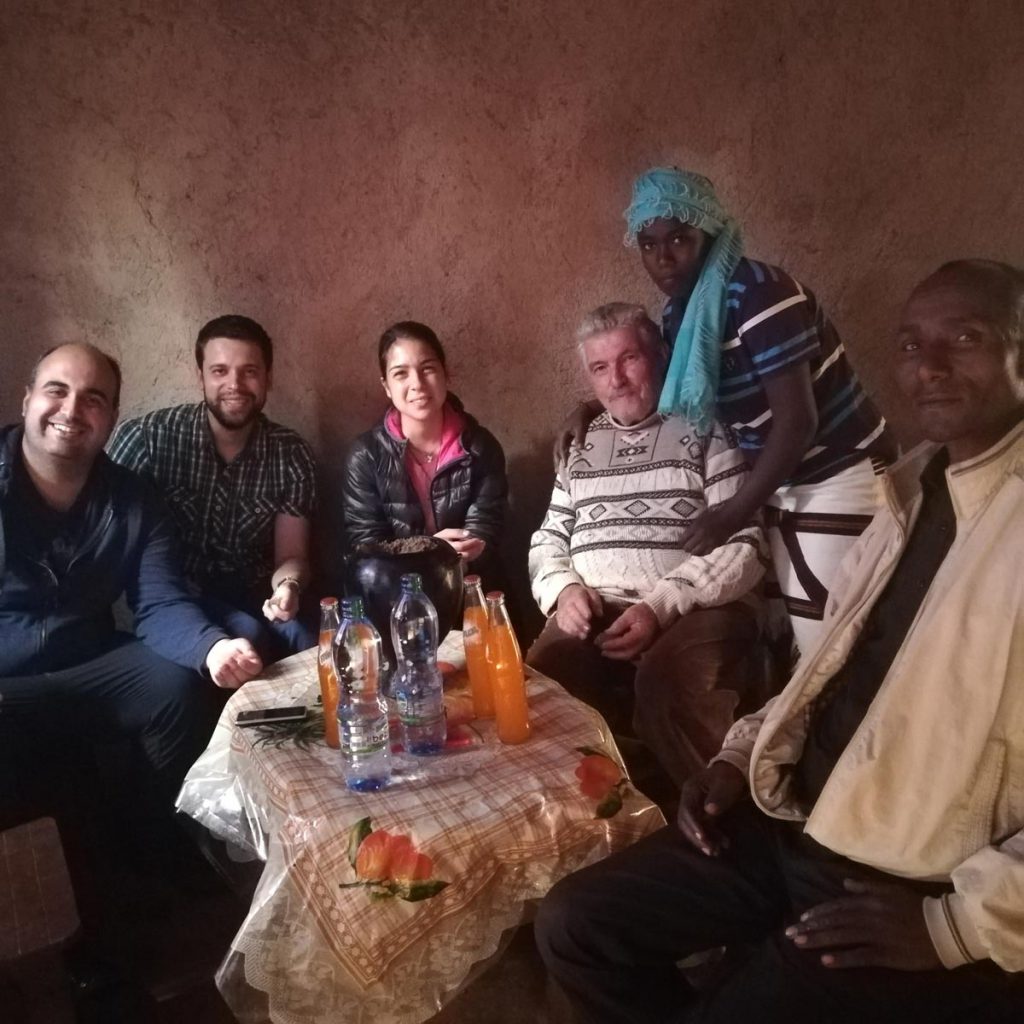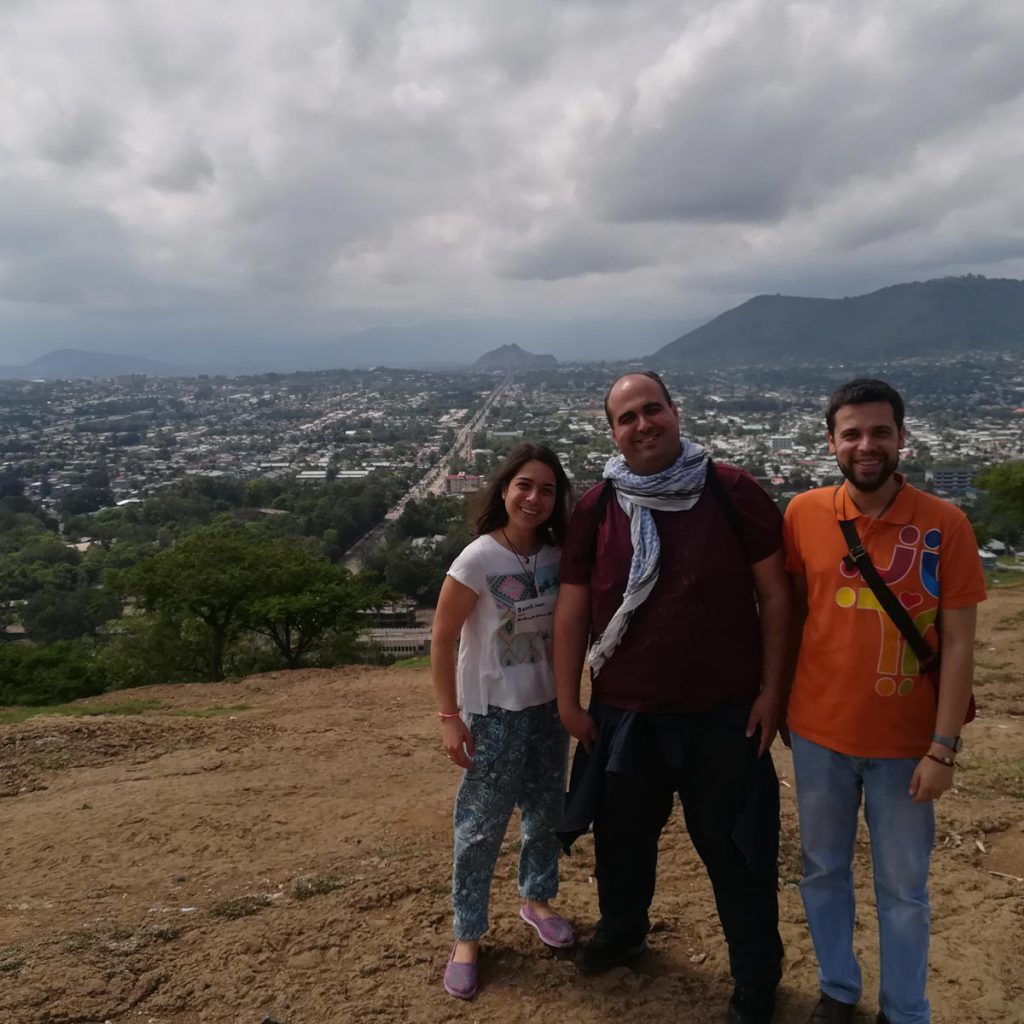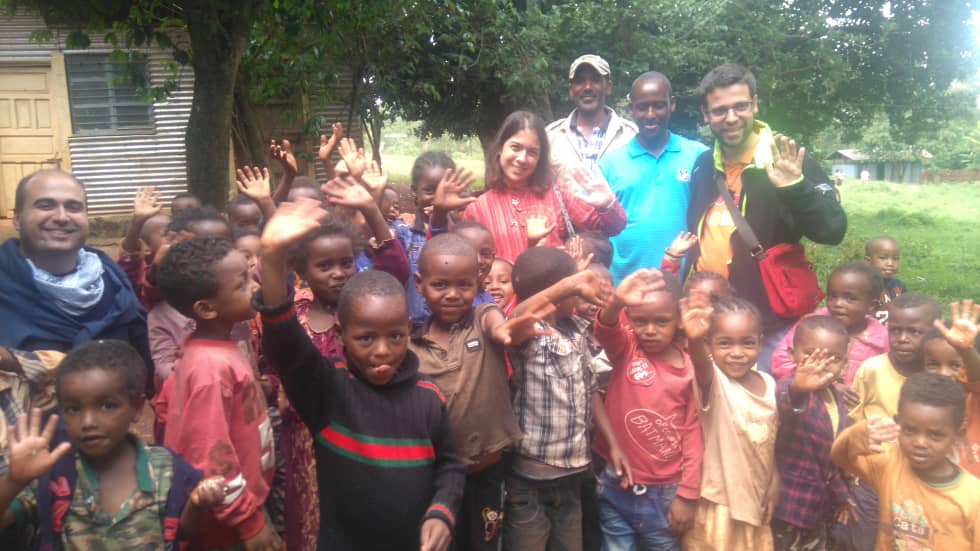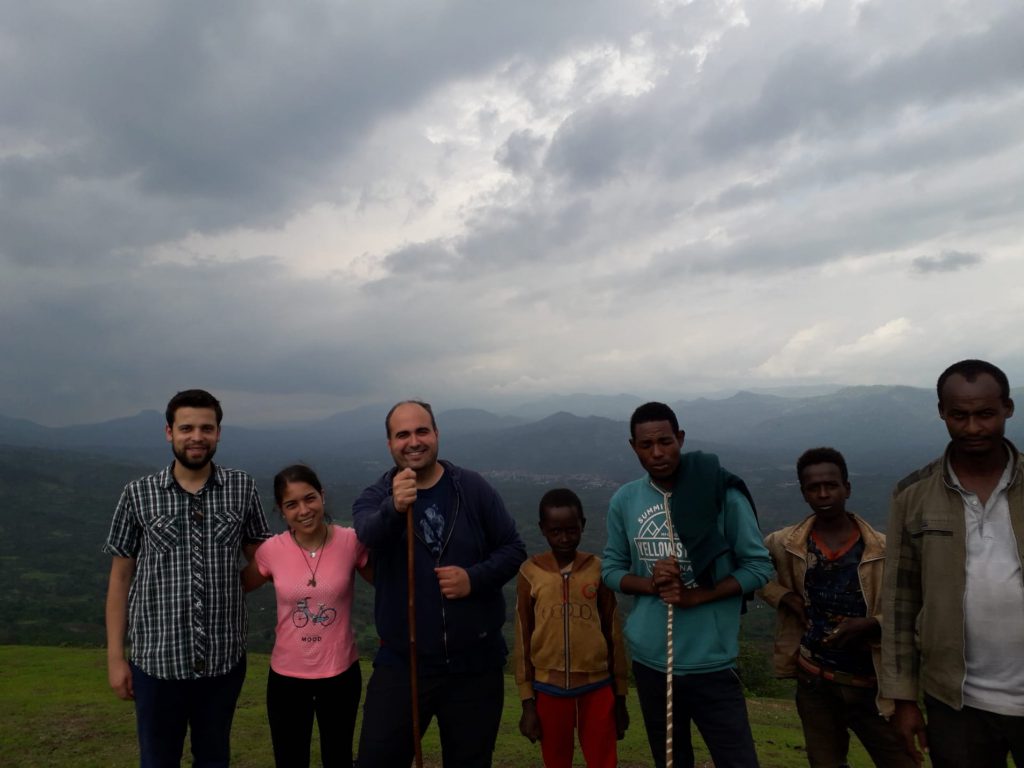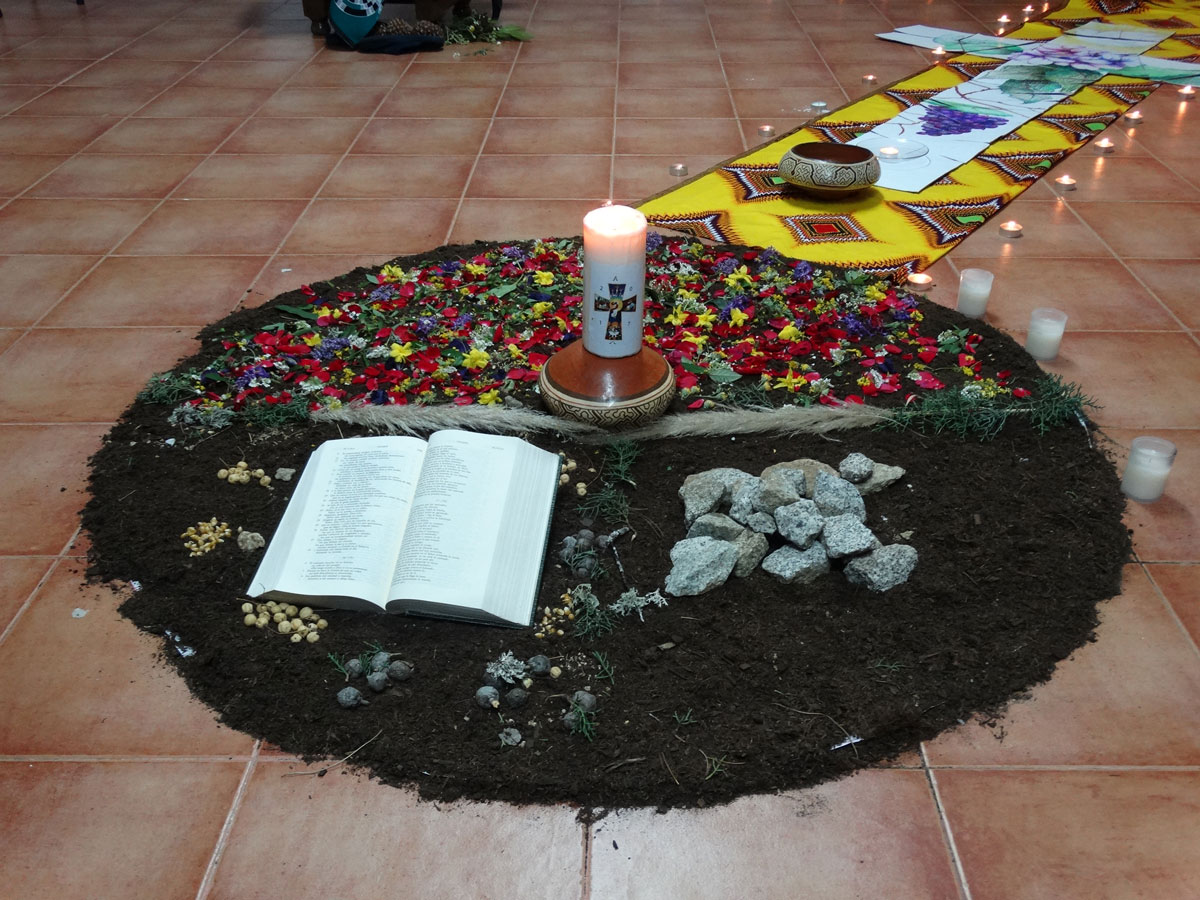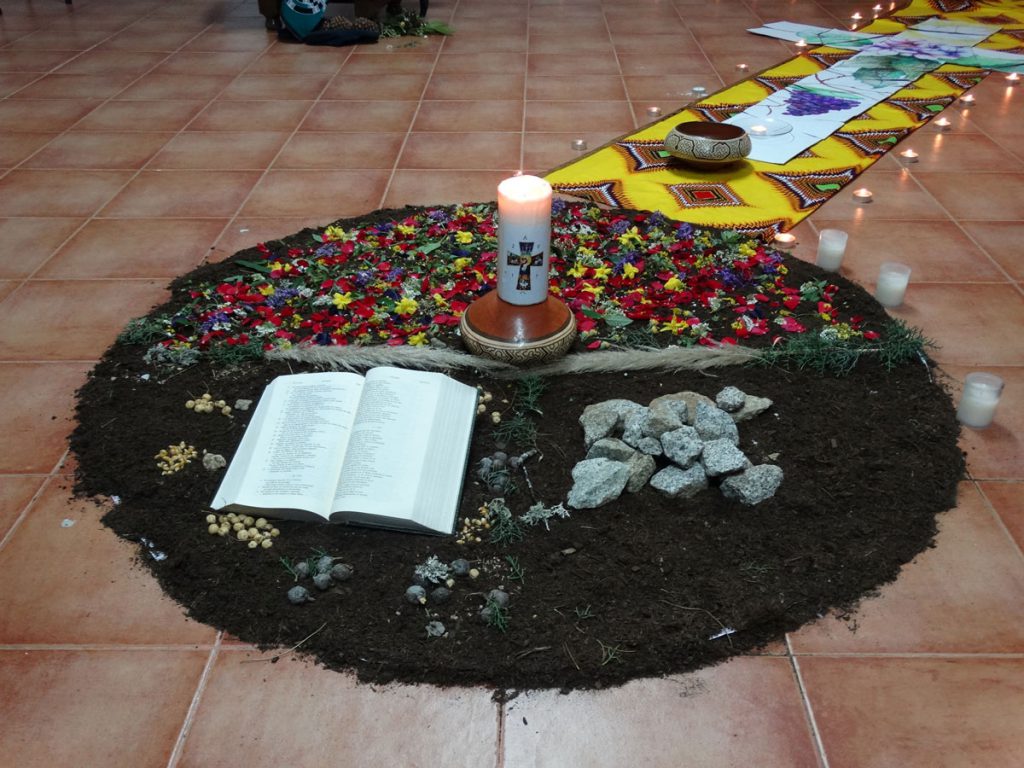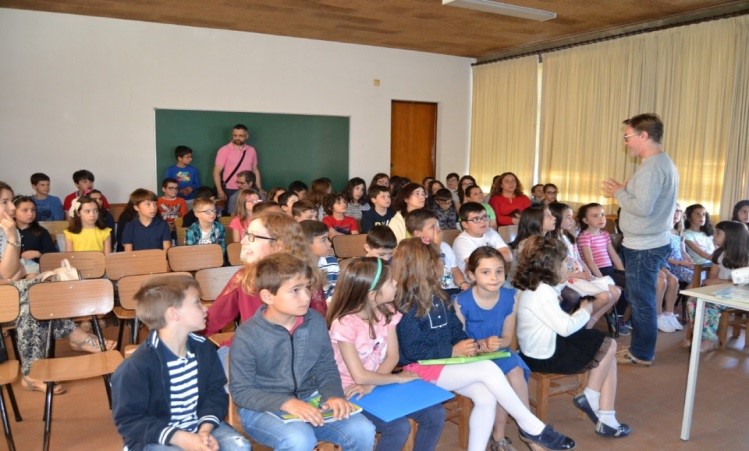My dear friends,
My heart is full and grateful for all the blessings and love I received on May 12, when in my parish – St. Eufemia – my missioning was celebrated… not only the ceremony itself, but the entire day and the mission promotion were full of sharing and missionary fraternity.
My thanks to all for being together in prayer. I feel fortunate… for belonging to you as family and for the many friends who fully love me. Thank you!
For those who could not be present at the Eucharist, I share what I said to all.
My dear Heavenly Father,
This is the prayer of your much-loved daughter, Carolina de Jesus Fiúza, who with the strength of this community is sent for two years to the people of Ethiopia.
From quite sometime your invitation has resonated within me saying:
“Go deeper at sea and throw your net to fish. Do not be afraid” come with me, you will fish people! Come, follow me!”
I thank you for this invitation and with great joy, like Mary, I say YES! May it be done to me according to your word!
To you my greatest THANKS for this Yes is the fruit of a mutual relationship. To You I repeat my THANKS for not giving up on me and for trusting in me. To you I give thanks for all these people who are here physically and spiritually. To You I give thanks for the thousand lives that, very often, without knowing, are a thousand lives for mission, just like Comboni was asking: a thousand lives for mission. I thank You for the courage and the strength that give to my Yes the confidence they place in me.
To you and to these people I give thanks and promise: promise to make mistakes and fail. Such is the human condition! But, I promise to always improve, learn, listen, keep silent, accept, understand, share what I am, accept what I am… and, above all, TO LOVE. I promise to give myself totally to the Ethiopian people and do what I can, with what I have, wherever I am.
I look at myself and see how small I am. But with my limitations, with what I have in my bag, I wish to give myself to you and go to the poorest and most abandoned, inspired by St. Daniel Comboni. I trust in the fact that you do not choose the able ones, but that you enable those you choose. Thus I trust that you will give me the ability to love this marvelous people of Ethiopia, where you reside since forever.
At times many do not understand why I choose to leave for the missions. I understand and accept their lack of understanding. And I appreciate the support which, even in a conditional form, they give me. Just like my dear father says, “Good can be done anywhere!” And it is not a lie…in fact, You Heavenly Father, You who are one Body, but with many members and with each member having its function, You call us all to be missionaries, in different ways. Today and to me the call is to go, to be the grain of wheat tat dies in the ground in order to bear fruit. And this isa mystery. Just like the mystery of the most beloved Son who died on the cross. Just like him, I too give my Yes ready to have the mission be born and grow at the foot of the cross. O My Father, will we ever be able to understand this mystery of the death of Jesus on the cross. Perhaps, no. In the same way, my Yes may not be understood by others. This is a mystery as well. Even for me the mission entrusted to me is a mystery. But I say Yes anyway. I do it with confidence because I know that never, never will you abandon me.
O my God, You know the GRATITUTE I have for many people. Without mentioning all of them, I especially am grateful to my family, who has agreed, who gave me missionary genes!
I thank you for the life of my parents, Edite and Manuel Fiúza, who gave me an education the best way they knew how. Without them, my life, my values, my gifts… all that I am, it would never have been possible. Many thanks for your life and the fruit of your creation, myself, the gift I am and which I want to bear fruit. I am grateful because it gives it the capacity of supporting me and loving me unconditionally, even without understanding my decision. I ask You to protect them, to look after them always, and give them always the strength to fight for life, just as they taught me to do.
I thank you for the life of my fiancé, Hélder Neves, who has supported me from the beginning and given me strength in times of serious doubts. I thank you for the love that binds us and can only come from you. I know that this Yes is not only mine, but from both of us. He too accepts of living the mission with me. And we accept this mission in great confidence. I ask you to protect him always, keeping him in your arms. And what you have joined, our mutual love, we will never dare to separate or damage. Gives the confidence and the trust to remain forever one!
I thank you for the life of all the parishioners of my “land, my beautiful land,” this beautiful St. Eufemia. This land that saw me grow and sustained me in life and in Christian faith. To the catechists, choir members, priests I met here (already 3 of them) and many people I see today, I wish the best… I am grateful for the life of each of you. Special thanks to Fr. Nuno Gil, whose joviality and strength to reach us all does not leave me indifferent. I pray that you continue to give him strength to continue leading the Kingdom here on Earth.
And finally, knowing that I could thank many more people, I thank you for the Comboni Family. I thank you for being the lighting this journey where I search for you daily and with love more and more. I thank you for the example given by each one of a life inspired by St. Daniel Comboni making it possible to understand more and more my missionary vocation. I truly thank them because the mission in Ethiopia trusts in me, And I ask that I may always be the best as a CLM.
O my God, you know that I take you within me more than anything. You know how much it hurts to leave the love I have here. But you also know how happy I am, because even where I go, love expects me there. I go to meet love, following in the footsteps of the one who sends me.
We well know that it is never a good-bye, but always a see-you-again.
See you again, my community. Never be afraid to say Yes, because God, a merciful Father, will never abandon us. I leave you a souvenir: a typical Ethiopian cross (sent to you by a Comboni Missionary Sister in Ethiopia) to help us remember that we all part of one cross, the cross of Christ. Pray for me and for the people and mission of Ethiopia. Be assure that we, too, will pray for you.
Carolina Fiúza CLM




